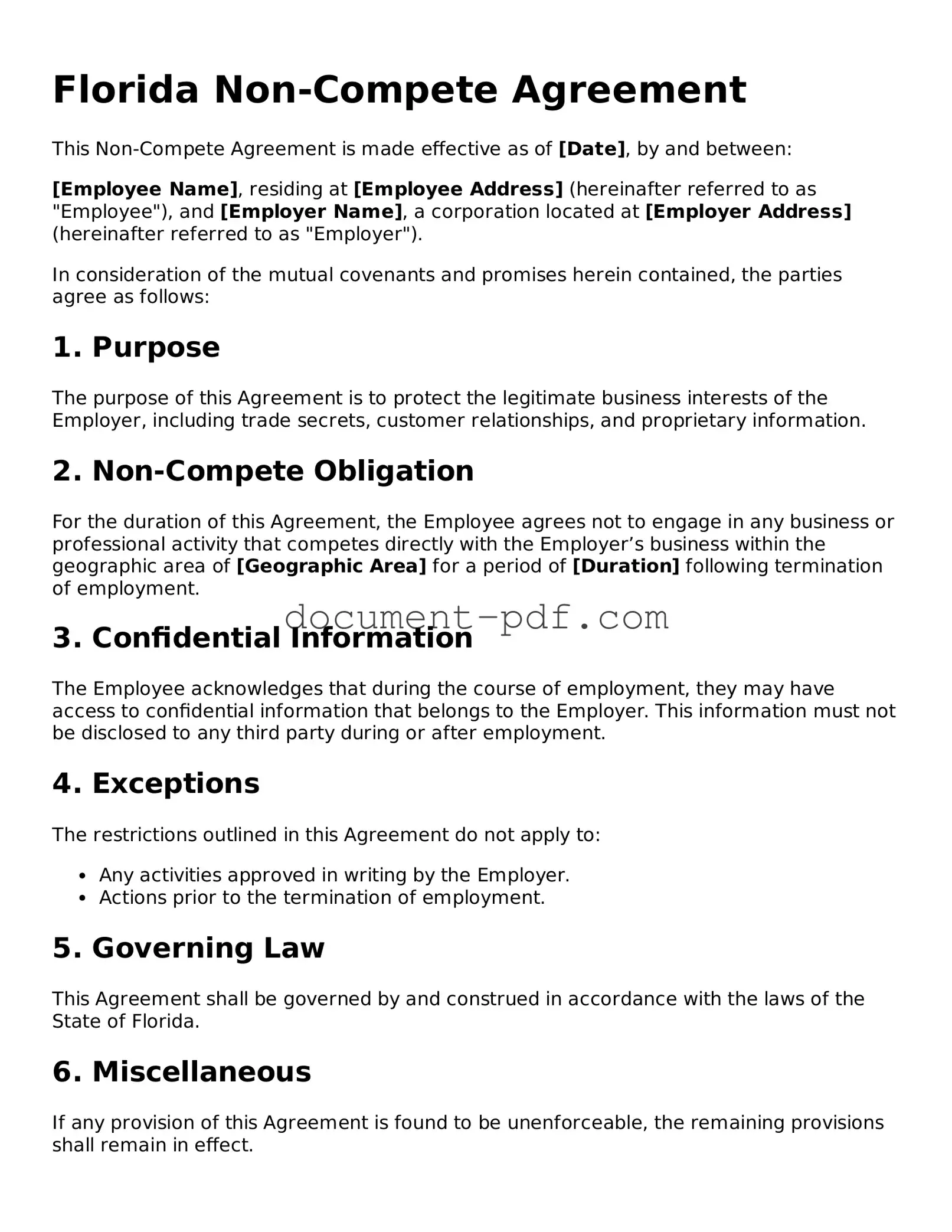Attorney-Verified Florida Non-compete Agreement Template
A Florida Non-compete Agreement form is a legal document that restricts an individual from engaging in business activities that compete with their employer after leaving the company. This agreement aims to protect the employer's business interests and confidential information. To ensure compliance and protect your rights, consider filling out the form by clicking the button below.
Access Non-compete Agreement Editor Here

Attorney-Verified Florida Non-compete Agreement Template
Access Non-compete Agreement Editor Here
Finish the form without slowing down
Edit your Non-compete Agreement online and download the finished file.
Access Non-compete Agreement Editor Here
or
Click for PDF Form
